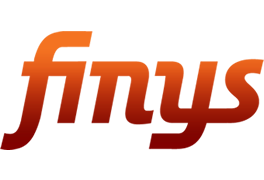What’s the Difference? (Part Two)
/0 Comments/in Blog /by Mark O'BrienIn our previous post, we wrote about the risks associated with system implementations including the project investment, lost productivity, re-implementation costs, consulting and legal fees, and reputational damage. That’s why we reduce our customers’ risk and exposure by employing a guaranteed-cost model (or guaranteed-cost contract). Using that model, our customers pay a fixed, predetermined price for a completed implementation. If cost overruns or unexpected expenses occur during the course of the project, we absorb them.
Here are some of the other benefits of a guaranteed-cost model include:
- Budget certainty: A guaranteed-cost model gives the customer budget certainty. It’s not if this, then that. Since the total cost of the project is predetermined and fixed, the customer can budget accordingly without worrying about cost overruns.
- Risk transfer: Since we assume the rise of cost overruns or delays, our customers have the comfort of knowing they won’t be on the hook for anything beyond the contract price.
- Motivated efficiency: Since we don’t expect to be compensated for any cost overruns — and along with the fact we’re committed to the satisfaction of our customers — the guaranteed-cost model is our incentive to complete the project on time and on budget. The increased efficiency and productivity benefits both parties.
- Simplified project management: Since the cost is fixed in advance, project management becomes more straightforward. Contractors can focus on delivering the project according to the agreed-upon specifications without constantly monitoring costs or negotiating change orders.
- Enhanced collaboration: By assuming the risk, we foster collaborative relationships with our customers because they understand we’re putting skin in the game.
- Fewer disputes: With a fixed price and greater collaboration, our working relationships stay positive and our implementation projects transpire more smoothly.
Will we try to convince you our guaranteed-cost model is perfect? No. But our track record might suggest it. We have more than 40 successful implementations to date. We humbly suggest you don’t earn a track record like that by doing it wrong.
Talk to us to learn more about how we get implementations right.

